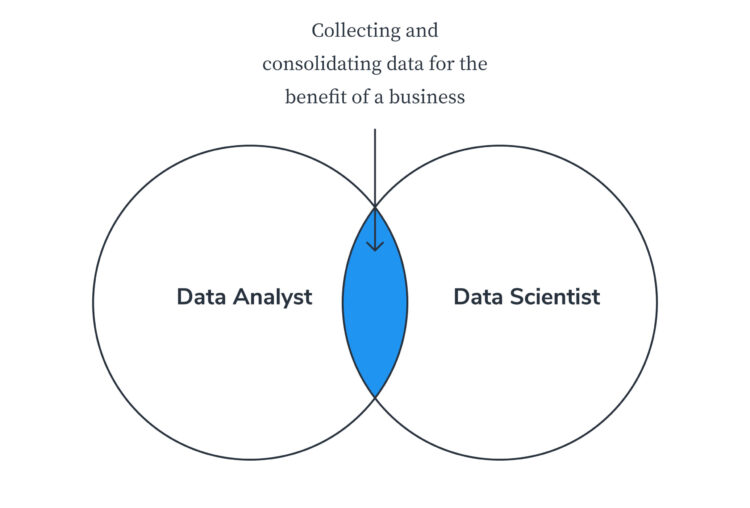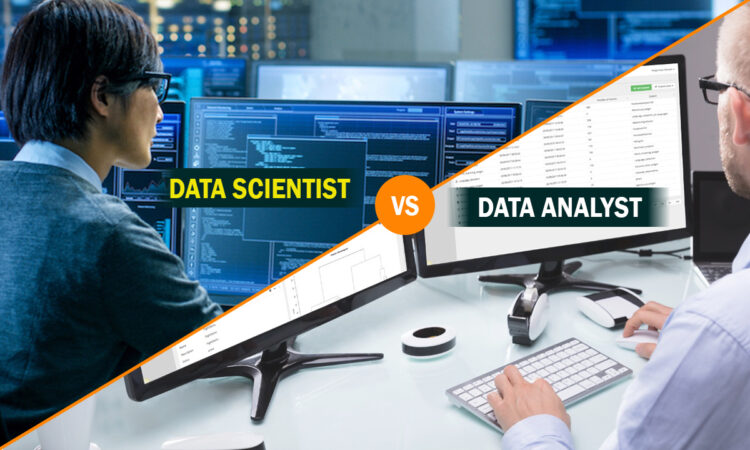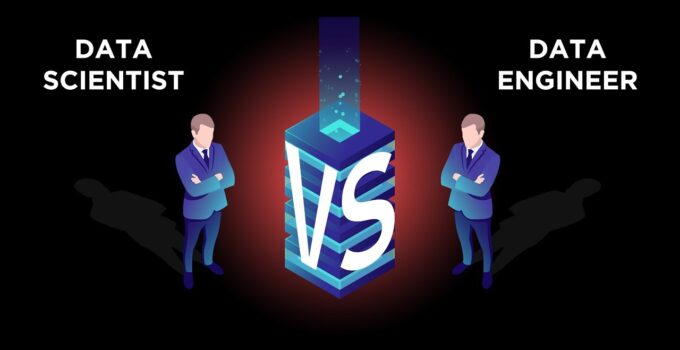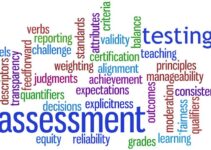Data scientist and Data analyst are two enticing careers any student can enroll in. But what does each mean? Are there any differences between the two careers? Which one is better? The answers to these and many more other queries are provided in this article in an attempt to help you out in your quest to select the ideal career between these two giant careers.
So, what is the difference between Data Science and Data Analytics? Sit back, and enjoy the content.
Many of you are about to start a career as a data analyst or data scientist and remain confused about which is the right career path for you. This decision would mostly depend on your career goals are, as well as your skills and competencies. That said, to help you with this spare you provide you a crystal clear insight into these two innovative career paths, here we explore Data Analysis and Data Science. Our aim is to help you better understand the difference between the two subjects so that you can make a decision as to which career path would better for you.
Page Contents
Data Analytics Vs Data Science – The Scope and Focus

Source: medium.com
Both data analytics and data science have different goals. However, the principal resource for both of them is data. And did you know? These two disciplines are interrelated. Data analytics is usually considered to be a branch of Data Science.
In a Data Science career, a student will explore and test fresh methods to use and interpret data. Data analytics, on the other hand, focuses on the analysis of datasets deriving insights and relevant solutions to problems.
A data scientist will use algorithms, predictive models, and prototypes to come up with fresh ideas on how to make use of data or formulate patterns or questions that may be ideal in the future. These are the efforts that help individuals drive innovation and formulate questions previously thought to have no answers.
Data analysts must use their skills to clarify data, extract significant information, and derive long-lasting solutions for various organizations and sectors such as energy management, finance, healthcare, travel, insurance, and many others. The insights of data analysts are used to set Key Performance Indicators (KPIs), improve the decision-making process among other purposes for an organization.
Data Analytics Vs Data Science Specializations

Source: algorithmia.com
Since a Data Science degree may be too broad to handle, let’s look at other vital sub-disciplines that one can choose in addition to Data Analytics. Some good options to choose from include;
-
- Data Visualization
-
- Data Mining
- Business intelligence
- Database Management and Architecture
- Data Engineering
In case you want to become Data Analyst and wondering which online course is best for you, then I would suggest to go with Udacity’s Data Analyst Nanodegree as it has some good reviews as mentioned in this article.
Skills and Tools: Choosing the Right Fit
The tools and technologies you need to know will also influence your career choice between a data analyst and a data scientist. Data analysts often use tools like Microsoft Excel, SQL, and maybe some basic data visualization software like Tableau. These tools help analysts clean, sort, and visualize data. Find a great Data Science Course here!
Data scientists, however, generally require a more diverse skill set. They often use programming languages like Python or R and are familiar with machine learning libraries and big data platforms. This is because data scientists not only analyze data but also create new data processes and algorithms for predictive or classification tasks.
Understanding the tools and skills required for each role can help you better align your career path with your interests and strengths. So, if you enjoy more straightforward data interpretation and have a knack for storytelling, a data analyst role might suit you. If you are more inclined towards programming and enjoy diving into complex algorithms, data science could be the better fit.
Data Analytics Vs Data Science Classes

Source: zarantech.com
Classes or subjects you study in university A may not be the same classes or subjects in university B. The classes or subjects do vary from one university to another. To be sure of the classes or subjects in your degree, one needs to cross-check the curriculum of his or her course to certify that the course meets their expectations.
In case you are interested in studying Data Analytics or Data Science in any university of your choice, the following are the classes you should expect to find in either of the two careers.
Data Analytics classes
- Data mining
- Visualization
- Calculus and linear algebra
- Essential statistics
- Statistical decision making and modeling
- Patterns recognition
- Computation, Machines, and Languages
Data Science classes
- Algorithms and data structures
- Principles of data mining
- Data security
- Database systems
- Discrete mathematics
- Software development
- Intermediate statistics
Data Analytics Vs Data Science Skills

Source: techrepublic.com
The two disciplines require some key skills from a student. Some are different while others overlap.
Some of these skills include;
Data Analytics skills
- Business acumen
- Proficiency in R, SAS
- Problem-solving
- Database management and reporting
- Knowledge of Excel, SQL, Power BI
- Attention to details
Data Science skills
- Machine learning
- A great deal of knowledge of visualization tools such as Tableau and QlikView
- Software development
- Attention to details
- You must be proficient in big data tools such as Spark and Hadoop
- You should be an expert in MongoDB, SQL, and Cassandra
- Programming abilities of Scala, Python, and R.
Today most of organizations are looking for Python more than R as the main programming language. Job descriptions may have both; but while working with engineers like machine learning engineers, data engineers, and software engineers will not have familiarity with R. Therefore, I suggest to go with Python as it will be more beneficial for you.
To excel in these disciplines, you should make the most of internship or attachment opportunities available during these studies as practical experience is far much better than theoretical learning.
Data Analytics Vs Data Science Jobs and salaries

Source: qs.com
A lot of companies rely on data and thus the need for professionals who can manage their data effectively. In the United States, Data Science is the third fastest-growing sector with a 37 percent annual growth. This is as per the Emerging Jobs Report from LinkedIn.
These two careers do pay well. We have compiled a few jobs and their salaries below.
Data Analytics jobs
- Quantitative analyst – 106 750 US dollars
- Data consultant – 76 400 USD
- Data Analyst – 69 000 USD
- Business Analyst – 68 350 USD
Data Science jobs
- Data scientist – 95 950 USD
- Machine Learning specialist – 77 150 USD
- Statistician – 76 900 USD
- Data architect – 72 700 USD
Degree and background comparison for a Data Scientist and a Data analyst
At least a bachelor’s degree in a quantitative field such as computer science, mathematics, or statistics will be required to become a data scientist or data analyst.
Conclusion
Although it was a bit lengthy article, I understand you are now well versed with the disparities or requirements that exist between a data analyst or data scientist. The two courses; data analytics and data science help you become a data analyst or data scientist respectively. Use the information provided in this article to choose the ideal career of the two.





